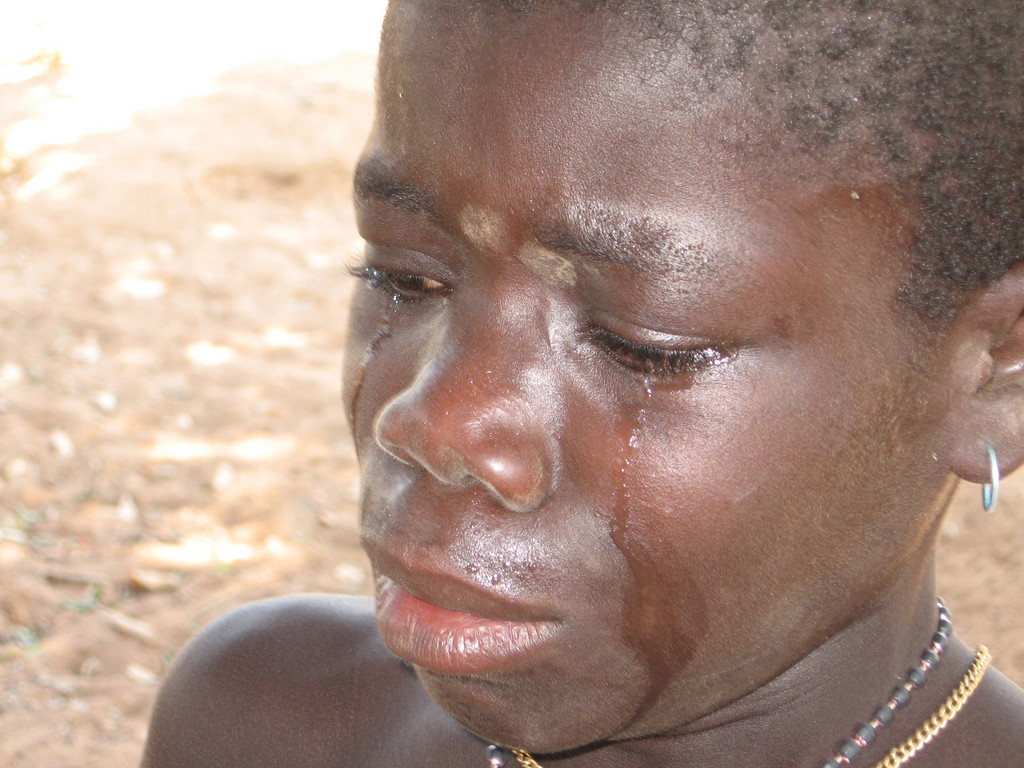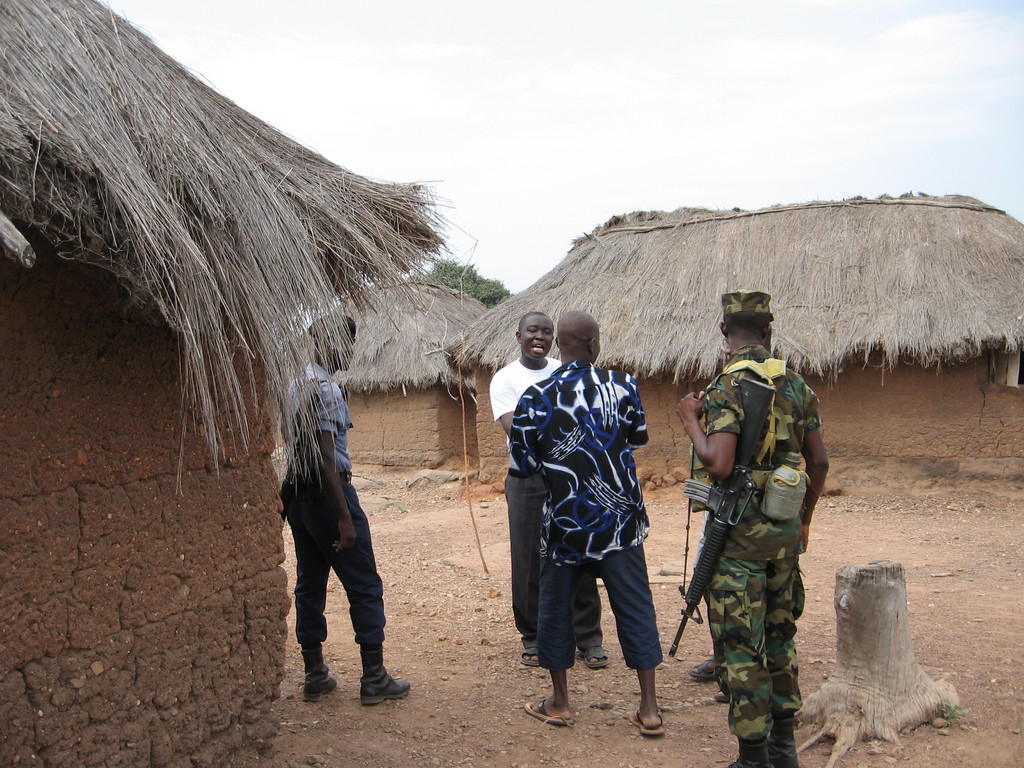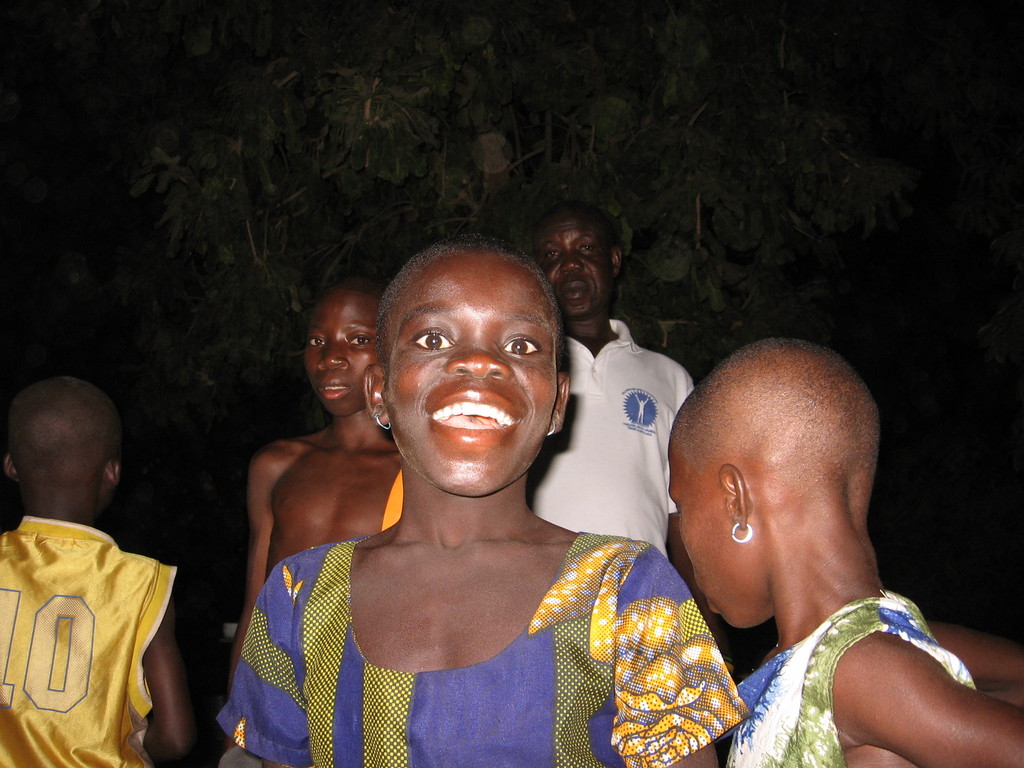By Eric Peasah | Field Manager, Counter-Trafficking
February 2009
On February 7th, after months of preparation and information gathering, we were at last prepared to begin Phase 1 of the first child rescue mission of 2009. In collaboration with our NGO partners, we hoped to rescue 35 to 40 children from the villages surrounding Yeji and Kete Krachi, both located on Lake Volta. For Phase 1, we worked with our local NGO partner from Kete Krachi, PACODEP, to identify 12 children that were ready to be released. PACODEP, along with the local volunteers from the surrounding villages and islands, had prepared a list of 12 children who could be released in this phase of the rescue mission. Despite extensive preparation leading up to the rescue mission, when we arrived in the communities, their stories and attitudes had changed and some fishermen were no longer willing to release the trafficked children living with them. Each day was spent in difficult negotiations with the fishermen in an effort to convince them to voluntarily release the children. In the end we were able to negotiate for the release of 12 children, only 2 of which were on our initial list for this phase of the rescue mission. The remaining 10 could not be rescued, as their masters were still not willing to release them. The next phase will take place in the communities surrounding Yeji, where we hope to rescue another 12 children. For Phase 3 we will return to the Kete Krachi area and in Phase 4 we will complete our mission in Yeji.
Akwetey’s Story: Released at Last
Akwetey, a boy who by this time is well known to IOM and our NGO partners, has been on our list of trafficked children living in Lala for some time now, and was even featured in a documentary we filmed with the help of the Christian Coalition last year. Three years ago we identified him in the village of Lala, but for the past three years his master has refused to release him. Last year, IOM staff was able to identify Akwetey’s mother, who is living in a community in the Greater Accra Region. In his mother’s community, most of the villagers believed that Akwetey had been missing for the past 6 years. However, we learned that Akwetey had been trafficked 6 times in his short life, journeying as far as Benin and Cote d’Ivoire. His mother, faced with severe economic hardship, had resorted to trafficking him, each time for various sums of money. When we met Akwetey’s mother, we showed her the footage of him working in the fishing boats on the lake. Upon seeing the condition of her son and the work he was forced to perform, she was filled with shame and regret and asked the IOM staff to help secure Akwetey’s release. We returned to Lala this year and when we explained that Akwetey’s mother had asked that he be released and returned to her care, the fisherman at long last agreed. Akwetey will travel with us to Accra, where he will spend time in the transition home in Madina. When he returns to his mother’s community, he and his mother will be monitored and receive the necessary support to enable Akwetey to succeed.
Nadu’s Story: When Peaceful Negotiations Fail
A year ago, while our team was conducting an education campaign in Botianor, a small fishing community in the Greater Accra Region, we were approached by a woman named Esi (A.C). She had come to us for help. She explained that over five years ago her sister had come for her daughter Nadu and taken her to a small island on Lake Volta, somewhere near the town of Kete Krachi. She told our team that she had pleaded with her sister and insisted that the child be returned to her, but that her sister had continuously refused. Upon receiving this information, the IOM staff contacted PACODEP, our NGO partner in the Kete Krachi area. The staff from PACODEP, with the help of the local volunteers, was able to locate Nadu in the small island village of Lala.
Nadu was one of the children that we sought to rescue during the first phase of our February 2009 rescue mission. On the second day of our rescue mission we arrived in Lala where we were met by the assembly man for the village, who is also the local volunteer collaborating with PACODEP and IOM. When we approached the home of Nadu’s aunt, we realized immediately that this would be a difficult negotiation. We found Nadu timid and scared, and wearing only a tattered skirt. She would not speak to any of our team members, fearing what might happen if she upset her masters. Although Nadu’s aunt had been informed by the local volunteer and PACODEP that we were coming, she maintained her position that the child would not be released. For over two hours our team spoke with Nadu’s aunt, explaining why we had come for the child, informing her that trafficking children was illegal and that she and her husband could be prosecuted if they did not agree to release Nadu immediately. Nadu’s aunt finally agreed, but stated that she would need to wait for her husband, the master, to return before she could formally hand over Nadu. When he returned and learned of what we had come to do, he became very aggressive and threatened our team with violence. He nearly hit some of the IOM staff, shouting that he would never release the child and that our team had no place on the island of Lala. After many failed attempts to calm him down, we informed the man and his wife that we were left with no alternative and that they would be prosecuted if Nadu was not immediately released. As the sun was going down we were forced to depart the island of Lala, but promised to return with the necessary authorities.
The next time we returned to Lala, we were not alone. Joining us were members of the Army and Navy who had come to escort the man back to Kete Krachi. When we arrived, we did not find Nadu at home and her aunt informed us that her husband was not around. The team members finally located Nadu and helped her to change into the only dress that she owned. She was then led to the boat where she would wait for the rest of the team. In the meantime, with the help of the authorities and the local volunteer, we were able to locate Nadu’s master, who had sought protection from the village chief. We found the man surrounded by many onlookers and clearly intoxicated. He continued with language similar to that of the day before, proclaiming that he was not afraid of anyone, not even the police, army or navy. Upon hearing this, the authorities announced that they would be escorting him back to Kete Krachi. The chief and villagers intervened on his behalf, explaining that he was in no position to travel and assuring us that when he was sober he would present himself to the police station in Kete Krachi. The authorities left the man with the chief and we proceeded to the boat where Nadu and the remaining members of our team were awaiting us. We returned to Kete Krachi with a very confused, disoriented, and nervous Nadu. Within a few short hours, after a bath, a haircut, and a warm meal, Nadu was smiling and playing with the other children.
Kojo’s Story: Struggling For His Freedom and the Cow That Was Promised to His Father
Kojo is a young boy that we met this year, a boy that we are sure to hear more about in the years to come. Seven years ago, Kojo’s father gave him to a farmer under an agreement that in two years Kojo would be released and the father would be given a cow. After two years attending to the cattle on the master’s farm, Kojo approached his master, but was told that the agreement had been for three years, not two. After the three years had passed, the master told him that if his father was to receive the cow, he would need to work an additional two years. After five years of working with the farmer, Kojo learned that his father had died. He spent the next two years working for his master.
With his father gone, there was no one around to argue for his release or to ensure that his family received the cow that he had been traded for. Accepting that his fate was now in his own hands, he escaped the island and journeyed to Kete Krachi where he shared his story with PACODEP and the Police. PACODEP and the police were able to secure his release and locate his older siblings who had been looking for him, but were unable to make the journey to Kete Krachi due to economic constraints. However, this was not enough for Kojo, for he wanted the cow that had been promised to his father. After difficult negotiations, the farmer agreed to give Kojo the cow. While it was suggested that Kojo sell the cow in the area before returning to Accra, he refused saying that the cow would remain with his family. IOM and PACODEP have now arranged for Kojo’s older siblings to journey to Kete Krachi to receive the cow. By seeking out PACODEP’s assistance in Kete Krachi, Kojo was able to secure his own freedom. He is a boy with inspiring strength and drive, who has begun to teach himself how to read and basic arithmetic skills. With the monitoring provided by IOM and our partner NGOs, Kojo will continue his education and hopefully one day will achieve his dream of becoming a mechanic.
Project reports on GlobalGiving are posted directly to globalgiving.org by Project Leaders as they are completed, generally every 3-4 months. To protect the integrity of these documents, GlobalGiving does not alter them; therefore you may find some language or formatting issues.
If you donate to this project or have donated to this project, you can receive an email when this project posts a report. You can also subscribe for reports without donating.


